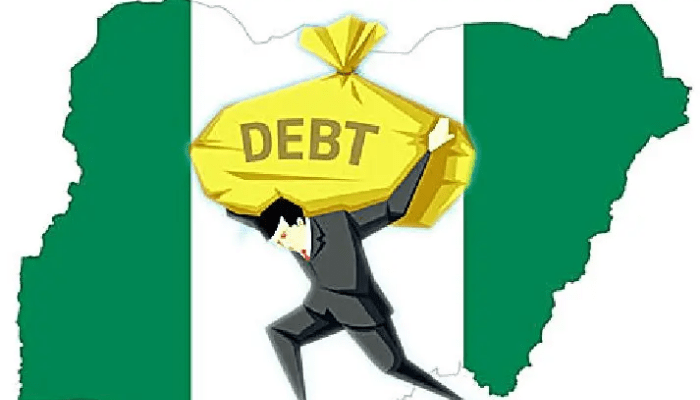Raphael Johnson
An analysis of data released by the Debt Management Office (DMO) has revealed that Nigeria’s total public debt rose by ₦57.3 trillion within the first 18 months of the current administration.
According to the figures, the increase represents a 65.6 per cent surge in the national debt stock, rising from ₦87.38 trillion at the end of June 2023 to ₦144.67 trillion by December 2024.
President Bola Tinubu, who assumed office on May 29, 2023, inherited a debt portfolio already burdened with significant domestic obligations, including a ₦22.7 trillion Ways and Means balance from the Central Bank of Nigeria (CBN). However, in less than two years, Nigeria’s borrowing profile expanded dramatically, driven by a surge in domestic debt and a sharp depreciation of the naira.
As of June 2023, the DMO reported Nigeria’s total external debt at ₦33.25 trillion, while domestic debt stood at ₦54.13 trillion. By December 2024, external debt had nearly doubled to ₦70.29 trillion, and domestic debt climbed to ₦74.38 trillion.The steep rise in foreign debt—both in nominal terms and as a share of total public debt—signals a notable shift in Nigeria’s debt composition, with external obligations now accounting for nearly half of the country’s total debt stock.
In U.S. dollar terms, however, the debt profile presents a different picture. Nigeria’s total public debt declined from $113.42 billion in June 2023 to $94.23 billion by December 2024—a nominal decrease of 17 per cent.
This apparent drop is not due to reduced borrowing but rather the naira’s sharp depreciation. The exchange rate plunged from ₦770.38 to $1 in June 2023 to approximately ₦1,535 to $1 by the end of 2024.

